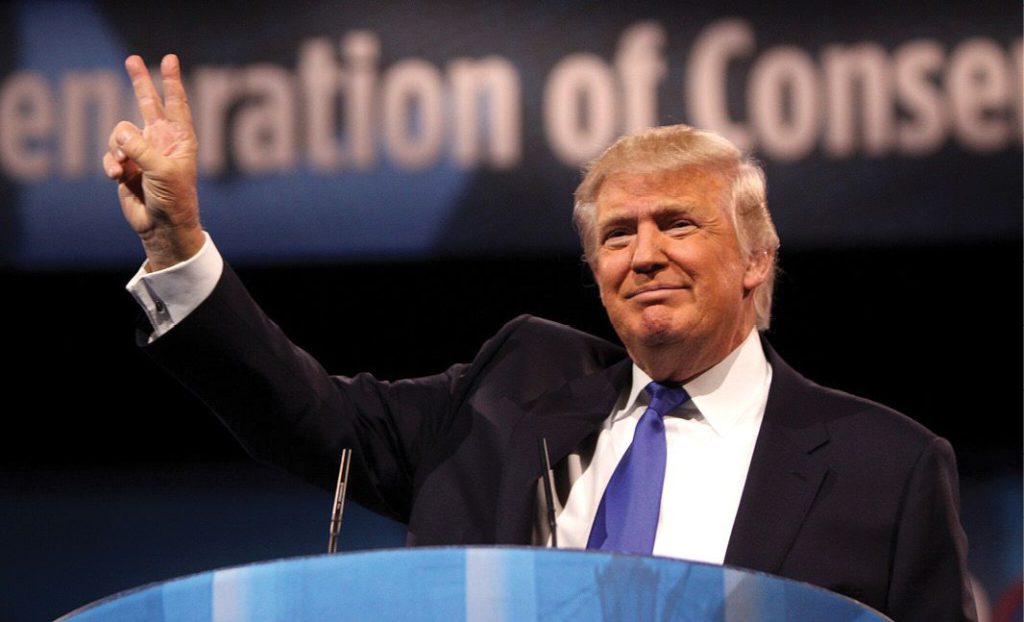The need to position Canada as an indispensable trading partner

Donald Trump was elected to a second term. Credit: Wikicommons photo by Gage Skidmore.
The 2024 U.S. presidential election results hold significant implications for the bilateral trade of critical minerals between Canada and the U.S. These minerals, essential for electric vehicles, renewable energy systems, and advanced electronics, are pivotal to both nations’ economic and strategic interests. Canada, rich in resources like nickel, cobalt, and lithium, plays a crucial role in supplying these materials to the U.S. The election’s outcome will influence trade policies, tariffs, and collaborative initiatives, directly impacting the stability and growth of this vital sector. The very recent announcement of a planned 25% tariff on all goods exported from Canada and Mexico by the U.S. President-elect underscores, in black Sharpie, the urgency for Canada to develop a trade strategy that exempts critical mineral exports from these tariffs.
Promoting Canada’s role in supply chain localization and security is vital moving forward. Emphasizing the interdependence of the mine-to-market supply chain between the two countries positions Canada as a preferred partner compared to less interconnected suppliers. Highlighting the existing and securing more U.S. investments in the Canadian mining and processing infrastructure, including defense-related funding, can reinforce mutual dependencies and justify exempting critical mineral trade from somewhat arbitrary tariffs.
Crucially, a shift in strategy will be necessary under the incoming administration. While the Biden-Harris administration prioritized clean energy, ESG performance, and decarbonization as key messages for collaboration, these levers are unlikely to resonate with the new regime. To secure favourable outcomes in critical minerals trade with a Trump administration, Canadian companies and the government must tailor strategies to align with the Trump administration’s priorities, which historically emphasize economic nationalism, trade balances, and U.S. strategic security.
Focusing on bilateral agreements that promote mutual economic benefits can align Canadian exports with U.S. priorities such as job creation. Canadian government and companies should frame mineral exports as essential drivers of U.S. manufacturing and downstream industries, appealing to the administration’s emphasis on domestic job growth. Strengthening political and corporate alliances with U.S. policymakers and industry leaders will further reinforce Canada’s indispensability and help mitigate potential trade barriers.
The Trump administration has consistently prioritized reducing U.S. reliance on foreign adversaries, such as China, for critical resources. Canada should position itself as a trusted ally in ensuring secure supply chains for minerals essential to defense, energy, and technology. Emphasizing shared interests, such as North American energy independence and national security, will align Canada’s objectives with the administration’s strategic priorities.
Regional organizations and Canadian companies can further support this narrative through direct agreements with U.S. industries and defense contractors. Highlighting reliable, high-quality critical mineral supply through publicized partnerships can bolster Canada’s reputation as a dependable trade partner. Canadian trade delegations that establish high-profile agreements with measurable economic benefits, such as job creation and investment, will be essential for strengthening this perception.
Given the Trump administration’s preference for bilateral agreements over multilateral frameworks, Canada should prioritize direct trade discussions tailored to U.S. interests. Government proposals emphasizing mutual benefits, such as tariff-free mineral access and enhanced U.S. investments in Canadian infrastructure, should be paired with active participation by Canadian companies. Joint ventures with U.S. firms in processing and refining operations can foster cross-border economic interdependence, making trade barriers less appealing to the administration.
The focus on U.S. job creation and economic growth offers another opportunity. Canada should frame critical minerals trade as a key contributor to U.S. downstream industries, such as EV battery production and renewable energy. By demonstrating how Canadian exports directly support American economic priorities, Canada can strengthen its negotiating position and work to secure exemptions from tariffs.
Building strong relationships with U.S. policymakers, industry groups, and state governments that rely on critical minerals is also crucial. Partnerships with influential organizations, such as the U.S. Chamber of Commerce, and outreach to state leaders and industry associations in critical industries will help mitigate federal protectionist tendencies. Similarly, Canadian companies should collaborate with U.S. corporate leaders in automotive, defense, and electronics manufacturing to align operations with U.S. sectoral priorities, solidifying long-term trade relationships.
In the broader geopolitical context, Canada can position itself as a strategic alternative to China by stressing reduced reliance on Chinese critical minerals. Aligning with U.S. energy transition and national security priorities strengthens Canada’s role as an indispensable partner. Local communities and individual companies must also contribute by highlighting operational excellence, innovation, and stakeholder engagement, thereby enhancing Canada’s reputation as a reliable supplier.
By aligning with the Trump administration’s economic and strategic priorities, Canada can position itself as an essential partner for critical minerals. A combination of government-to-government diplomacy, corporate alliances, and a strong emphasis on mutual benefits can help ensure favourable trade outcomes for Canada, even under a protectionist U.S. administration. It is important to remember that especially in a world of shifting priorities, Canada’s critical minerals are not just resources, they are the foundation of a shared future.
Steve Gravel is the manager of the Centre for Smart Mining at Cambrian College.




